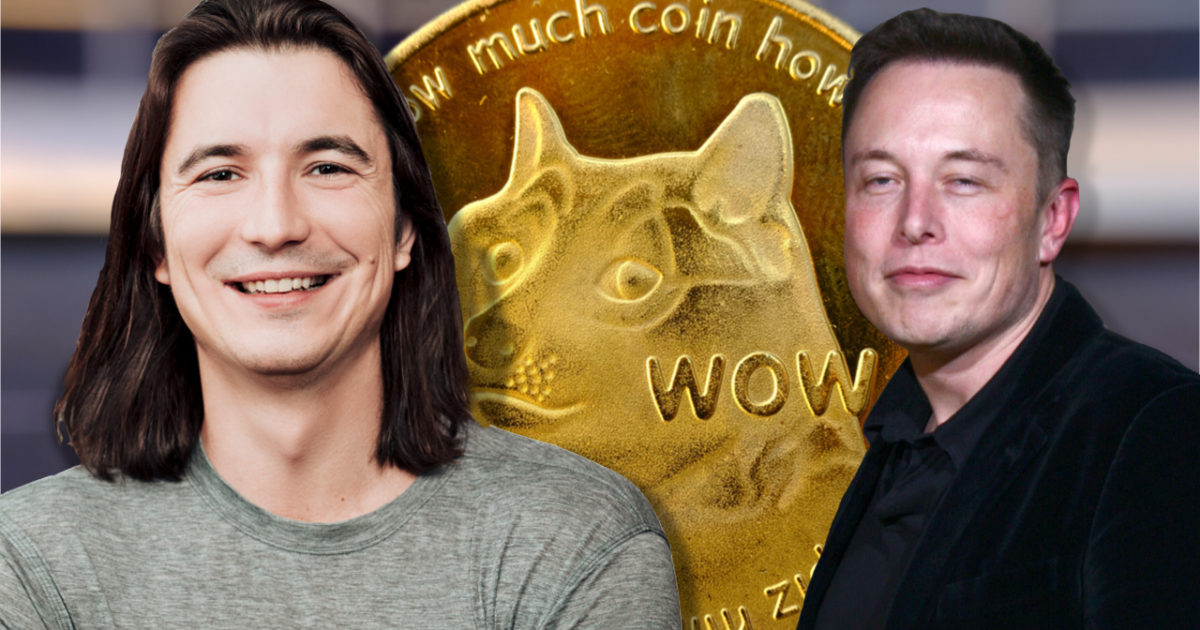On Thursday, following Robinhood’s listing of shiba inu, the co-founder and CEO of Robinhood, Vladimir Tenev, spoke about dogecoin being the future currency of the internet on Twitter. Tenev’s Twitter thread got a lot of comments and also received responses from the co-founder of the meme-based crypto, Billy Markus, and Tesla’s Elon Musk.
Robinhood CEO Discusses How Dogecoin ‘Can Be the Future Currency of the Internet and the People’
Elon Musk’s favorite crypto asset dogecoin (DOGE) got some attention on Thursday after the Bulgarian-American entrepreneur and Robinhood CEO, Vladimir Tenev, started a thread on the meme-token subject. The topic started as Twitter was ablaze with commentary concerning Elon Musk’s unsolicited bid to purchase the social media platform. It also follows Robinhood’s recent shiba inu (SHIB) listing and the company adding DOGE.
“Can Doge truly be the future currency of the Internet and the people?” Tenev tweeted on Thursday. “As we added the ability to send/receive DOGE on Robinhood, I’ve been thinking about what that would take. First off, transaction fees have to be vanishingly small. We’re already there. As of last Nov’s 1.14.5 update, typical transaction fees have been ~$0.003 – which you can experience on [Robinhood App] – compared to the 1-3% network fees that major card networks charge,” Tenev added.
The Robinhood CEO further said that the block time should be fast enough to be recorded into the chain in less time than a point-of-sale (POS) transaction. “But it shouldn’t be so fast that miners start building up too many competing chains and waste excessive amounts of energy establishing consensus,” Tenev opined. The Robinhood executive continued:
Doge’s current block time is 1 minute. This is a bit on the long side for payments – a ten second block time would be more appropriate as it would be less than the typical time spent completing a debit card transaction.
Elon Musk: ‘Block Size and Time Should Keep Pace With the Rest of the Internet’
Following Tenev’s Twitter statements, Musk responded after a very active day on Twitter for the Tesla executive. “6 seconds, better said as 6000 milliseconds, which is a long time to computers, is about right,” Musk replied to the Robinhood CEO. Making the conversation a bit more interesting, Dogecoin co-founder and software engineer Billy Markus added his two cents to the discussion with Tenev and Musk.
Markus detailed that eight years ago, he chose one minute blocks because “someone on bitcointalk said 45 seconds on a different chain was causing lots of issues, and 60 seconds was the fastest without having too many issues.” Markus then said:
The faster while still secure, the better IMO — I would guess the infrastructure of the web has improved enough in 8 years to experiment with speeding it up.
Tenev’s Twitter statements follow the recent listing of shiba inu on Robinhood and the CEO has been tweeting about that meme-based crypto asset as well. Musk has been conversing about Dogecoin network improvements for quite some time now (usually on Twitter), and has briefly mentioned a few times last year that the network should scale to the masses. In Tenev’s thread, Musk added a response to Markus’ “faster while still secure, the better” opinion and said: “Exactly, block size & time should keep pace with the rest of the Internet.”
Tenev’s Twitter statements also touched on Dogecoin’s supply mechanics when he explained that DOGE is “inflationary and the supply is infinite, as opposed to Bitcoin’s finite supply of 21M coins.” The Robinhood CEO said:
~5B new Doge are created every year, and the current supply is about 132B. This results in a current inflation rate of
Since Musk started talking about scaling the Dogecoin network last year, the Dogecoin Core development Github repo has seen a lot more action during the last 12 months. In fact, 1000x.group statistics show that between August 2017 and January 2021, Dogecoin network development was stagnant. Active Dogecoin Core network developers in recent times include the programmers Patrick Lodder and Ross Nicoll.
What do you think about the conversation on Twitter with Vladimir Tenev, Billy Markus, and Elon Musk? Let us know what you think about this subject in the comments section below.
Image Credits: Shutterstock, Pixabay, Wiki Commons
Disclaimer: This article is for informational purposes only. It is not a direct offer or solicitation of an offer to buy or sell, or a recommendation or endorsement of any products, services, or companies. Cryptox.trade does not provide investment, tax, legal, or accounting advice. Neither the company nor the author is responsible, directly or indirectly, for any damage or loss caused or alleged to be caused by or in connection with the use of or reliance on any content, goods or services mentioned in this article.




